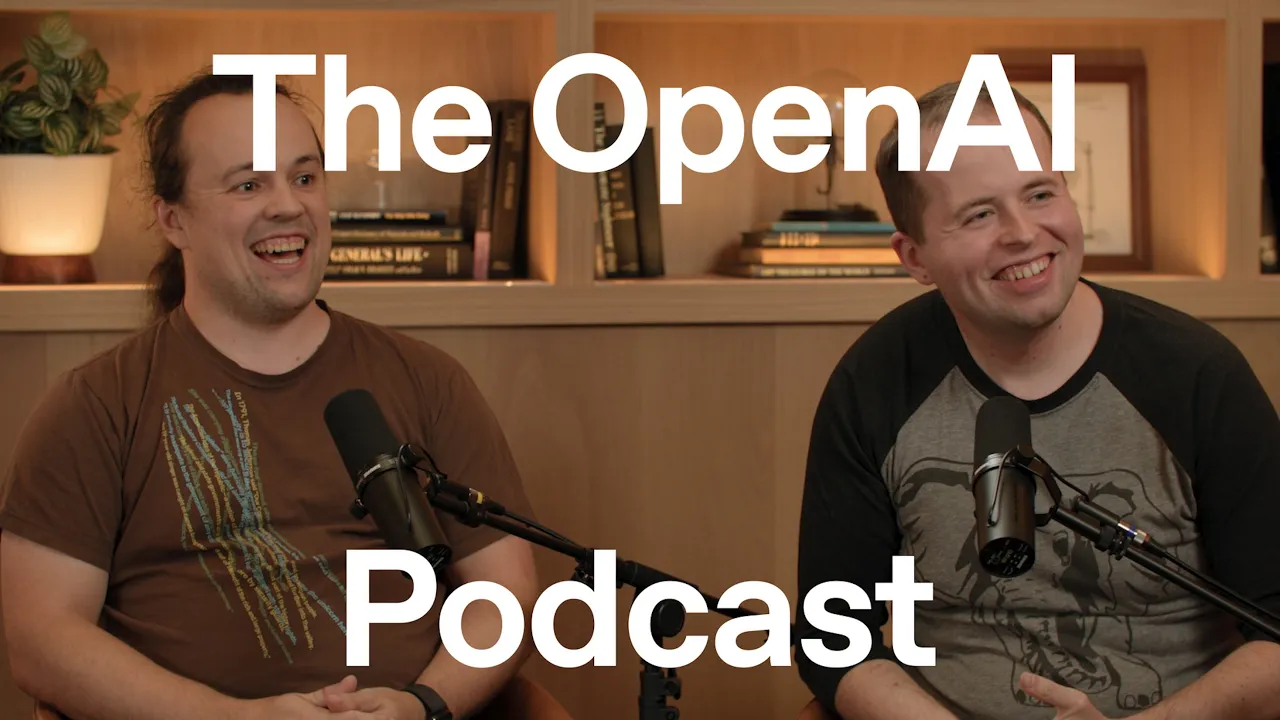
The journey toward Artificial General Intelligence (AGI) has accelerated dramatically in recent years, with OpenAI at the forefront of this technological revolution. In a fascinating discussion, OpenAI's chief scientist Yakob Pahhatzki and researcher Simone Sedor shared insights on how our understanding of AGI has evolved, the metrics used to measure progress, and the transformative potential of AI systems that can automate scientific discovery.
The Evolving Definition of AGI
A few years ago, the concept of AGI felt abstract and distant. The capabilities we associated with human-level intelligence—natural conversation, solving complex math problems, conducting research—all seemed to exist in the same far-off future. Today, that landscape has dramatically changed.
"We pretty clearly are at the point where AI is able to converse naturally on a wide range of topics," notes Pahhatzki. "It is able to solve math problems—getting a gold medal at the International Mathematical Olympiad (IMO) is something we've long discussed as a milestone on the path to AGI, and that happened."

This progress has shifted how researchers at OpenAI think about AGI. Rather than focusing solely on specific benchmark achievements, they're increasingly concerned with the real-world impact of these systems and their potential to transform how we create new knowledge and technology.
From High School Programming to OpenAI
Both Pahhatzki and Sedor share a fascinating background—they attended the same high school in Poland, drawn there by an exceptional computer science teacher, Mr. Rashard Subarovski. This early educational experience shaped their approach to AI research.
"We were both drawn there by this computer science teacher who had a great track record of bringing up computer scientists and programmers with a big focus on programming competitions and pursuing excellence," Pahhatzki explains.
Sedor adds that their education went far beyond typical high school curriculum: "It was like really going deep on programming... there was graph theory, matrices, and all sorts of stuff like that." This foundation in rigorous mathematical thinking and programming competitions prepared them for the challenges of advanced AI research.
The Rapid Acceleration of AI Capabilities
One of the most striking aspects of the conversation is the reflection on just how rapidly AI capabilities have advanced. Sedor recalls working on natural language processing with deep learning about ten years ago:
"Back then it just didn't really work. I remember Jakob once came to test one of the technologies we were working on for detecting sentiment of sentences. He tried 'this movie is bad'—correctly classified as negative; 'this movie is good'—correctly classified as positive. Then he would say 'this movie is not bad' and the model would say 'negative.'"
The progression from these primitive capabilities to today's sophisticated AI systems has been remarkable. From sentiment analysis to GPT-1 generating coherent paragraphs, to GPT-4 producing responses that genuinely surprise experienced researchers—the pace of advancement continues to accelerate.

Automating Scientific Discovery: The Next Frontier
Perhaps the most profound insight from the conversation concerns the potential for AI to automate scientific discovery and technological innovation. Pahhatzki explains: "When I think about how AI progress really impacts the world meaningfully, I first think about its potential for automating the discovery and production of new technology."
This vision represents a fundamental shift in how we understand technological progress. Historically, we've associated new ideas and technological breakthroughs with human ingenuity. The notion that a computer system could generate ideas that fundamentally change our understanding of the world is difficult to internalize—yet according to OpenAI's chief scientist, "that is not that far away."
This perspective drives OpenAI's research priorities. Rather than focusing on applying AI to specific domains, they're pursuing general intelligence that can contribute across all fields of human knowledge.

AI as a Companion, Not a Replacement
Despite the impressive capabilities of current and future AI systems, the researchers emphasize that AI works best as a companion to human expertise rather than a replacement. Discussing the role of AI in education, they highlight that while AI can explain concepts clearly and even create interactive demonstrations, it cannot replicate the emotional support and mentorship provided by human teachers.
"The thing that [our teacher] was able to provide was more like emotional support and space, which I think will be hard for AI to do alone," notes Sedor. This human element remains irreplaceable, even as AI systems become increasingly capable in knowledge domains.
Promising Applications of Current AI Systems
While OpenAI's vision focuses on general intelligence, they recognize that current AI systems already show remarkable capabilities in specific domains. Pahhatzki notes that AI seems particularly effective in areas "that combine a large amount of reasoning with a lot of domain knowledge and intuition."
- Medicine: The researchers highlight "pretty incredible results" in medical applications
- AI research itself: Naturally, as AI researchers, they're exploring how AI can automate aspects of their own work
- AI safety and alignment: Using AI systems to help solve the challenges of ensuring AI remains beneficial and aligned with human values
The Path Forward: Measuring Progress Toward AGI
As AI capabilities continue to advance, traditional benchmarks become less adequate for measuring progress. The researchers suggest that instead of focusing on specific tasks like solving math olympiad problems, we should consider the broader impact of AI systems on scientific discovery and technological innovation.
This shift in perspective reflects a deeper understanding of what AGI might mean—not just a system that can pass specific tests, but one that can genuinely contribute to expanding human knowledge and capabilities across domains.
Conclusion: The Accelerating Journey Toward AGI
The conversation with OpenAI's researchers offers a rare glimpse into how the leading AI research organization thinks about progress toward artificial general intelligence. From their perspective, we've already achieved capabilities that seemed distant just a few years ago, and the pace of advancement continues to accelerate.
As we move forward, the most transformative potential of AI may lie not in specific applications but in its ability to automate the process of scientific discovery itself—potentially unlocking new knowledge and technologies at a pace previously unimaginable. This vision of AI as a partner in expanding human knowledge represents both the promise and the challenge of the AGI breakthrough that may be closer than many realize.
Let's Watch!
Inside OpenAI's AGI Breakthrough: From Math Olympiads to Automated Research
Ready to enhance your neural network?
Access our quantum knowledge cores and upgrade your programming abilities.
Initialize Training Sequence